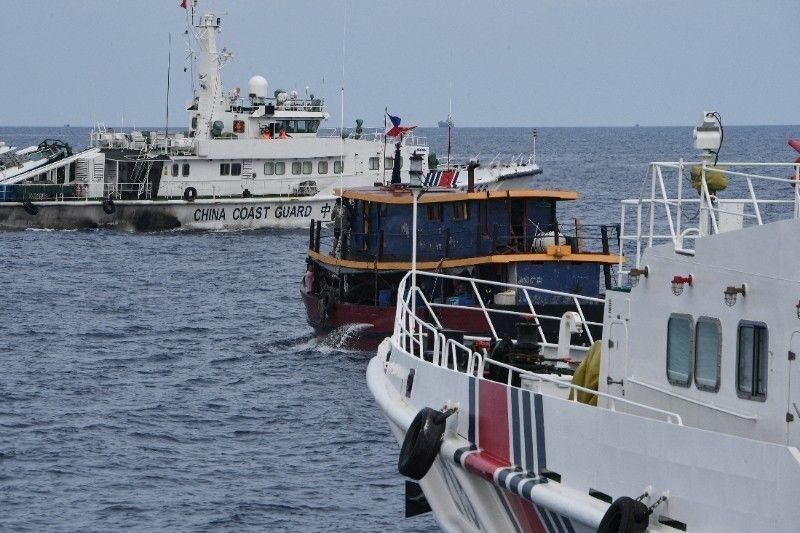PCG calls China’s trespass rule ‘empty threat’

MANILA, Philippines — The Philippine Coast Guard (PCG) on Monday dismissed Beijing’s directive to detain foreigners entering disputed areas in the South China Sea as a scare tactic to deter civilian missions.
“The way we see it, this statement from China is just an empty threat. They want to discourage civil society, not just in the Philippines, but even in other claimant states to the South China Sea,” Commodore Jay Tarriela, PCG spokesperson for West Philippine Sea issues, said in Filipino during an interview with TeleRadyo Serbisyo.
“The civil society is frightening for them because they don’t know how they’re going to respond to these civilian movements since they are not sanctioned by the government,” he added.
China has authorized its coast guard to detain foreigners suspected of “trespassing” within its claimed borders for up to 60 days without trial.
The China Coast Guard (CCG) adopted the measure on May 15, the same day the “Atin Ito” coalition began its second civilian-led mission to Panatag (Scarborough) Shoal in the West Philippine Sea.
President Ferdinand Marcos Jr. on Saturday called China’s new rule “completely unacceptable to the Philippines.”
“The position that we take is that it’s unacceptable and we will take whatever measures to always protect our citizens,” Marcos said.
Under the new directive, the CCG is permitted to detain foreigners suspected of violating entry and exit rules, individuals assisting others in illegally entering or exiting Chinese territory, and those with illegal residence or employment.
The regulations also allow the detention of people “endangering national security and interests, disrupting social and public order, or those engaging in illegal and criminal activities,” as translated by an open-source translation tool.
For years, Filipino fishermen have faced persistent harassment from Chinese vessels in the contested waters, causing a steep decline in their livelihood.
Beijing claims nearly the entire South China Sea, dismissing claims from other countries, including the Philippines, and an international court ruling that found its assertions to have no legal basis. — Gaea Katreena Cabico with report from Cristina Chi
- Latest
- Trending
































